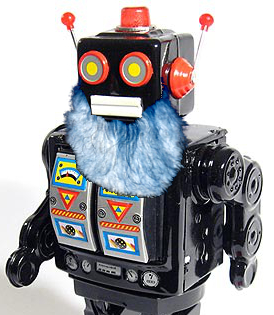New site for hybrid thought
 CSIRO says it is reimagining the concept of intelligence by bringing together the best of human and machine thinking.
CSIRO says it is reimagining the concept of intelligence by bringing together the best of human and machine thinking.
The new $12 million Collaborative Intelligence (CINTEL) Future Science Platform aims to move beyond machines replacing people or automating their jobs, and instead to create teams that maximise the benefits of both human and machine intelligence.
One of CINTEL’s first projects will draw on the expertise of CSIRO’s Robotics and Autonomous Systems Group who recently claimed a silver medal in the international DARPA Subterranean Challenge.
The challenge, which has been described as the ‘robot Olympics’, involved using teams of robots to explore and locate objects in unmapped underground environments under the supervision of a human operator.
CINTEL Leader Dr Cécile Paris says lessons from the challenge will help inform future human/robot teaming.
“The project will focus on developing a richer, dynamic human-robot collaboration, enabling humans and robots to respond in real time to changes in the environment and make better decisions, together,” Dr Paris said.
“CINTEL will research dynamic situation awareness and mechanisms to ensure a collaborative dialogue between humans and robots throughout, for example, a rescue mission.
“Rescue missions are often ill defined and dynamic, and the humans must use their own knowledge and skills, like reasoning, intuition, adaptation and experience, to identify what the robots should be doing. CINTEL will investigate how humans can fully utilise their unique skillset in collaboration with the robots for successful outcomes.”
Other early CINTEL projects include developing a digital team member to help scientists make sense of the massive amount of information in modern biological collections and supporting cybersecurity analysts with collaborative surveillance.
The program will be run by CSIRO in collaboration with research and impact partner Saber Astronautics, as well as Emesent, the Queensland AI Hub, TAFE Queensland, Aged Care Industry Technology Council, Global Community Resourcing, the Department of Defence, the Queensland University of Technology, and researchers from Monash University and the University of Sydney.
CINTEL will run for four years and will bring together behavioural and social scientists with computer, robotics and domain experts to develop the general-purpose technology needed to facilitate collaborative human/machine teams.







 Print
Print